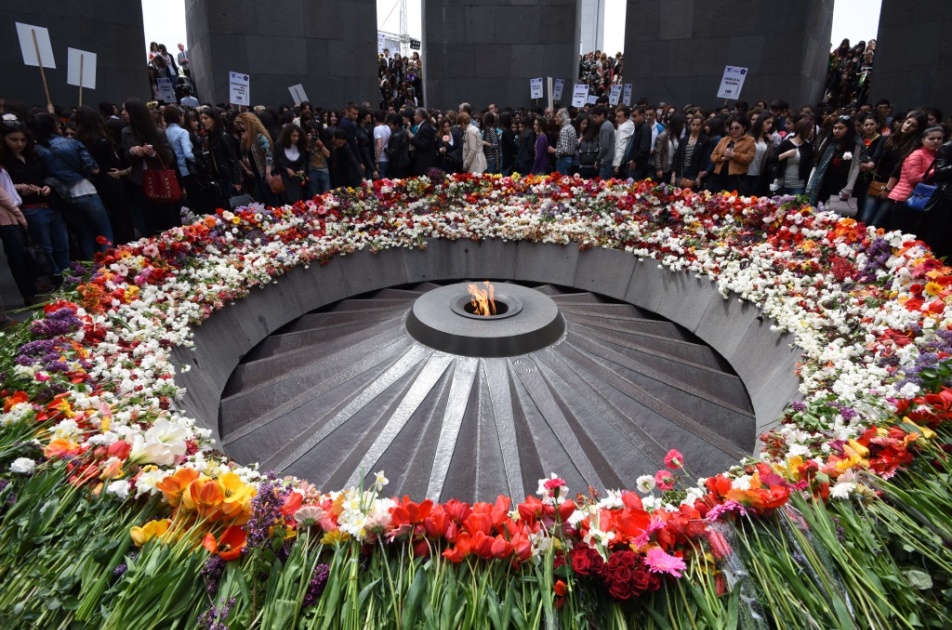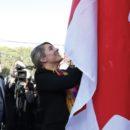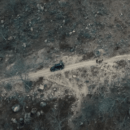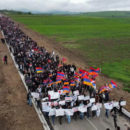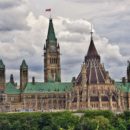Tens of thousands of people marched to the Dzidzernagapert memorial in Yerevan on Monday to mark the 102nd anniversary of the Armenian genocide in Ottoman Turkey.
The annual daylong procession followed a prayer service led by Catholicos Garegin II, the supreme head of the Armenian Apostolic Church, by the hilltop memorial’s eternal fire. President Serzh Sarkisian, Prime Minister Karen Karapetian and other senior government officials also attended the ceremony held in memory of some 1.5 million Armenians massacred by the Ottoman Turks during the First World War.
The genocide began with the arrest on April 24, 1915 of hundreds of Armenian intellectuals and political figures in Constantinople. That was followed by the mass killings and deportations of Armenian subjects of the crumbling Ottoman Empire.

Armenia — PeopleArmenians by Ottoman forces in Yerevan, April 23, 2017 take part in the torchlight procession as they mark the anniversary of the killing of 1.5 million
“It is our duty to not only remember and respect [the genocide victims] but also to live, work and fight in their place with redoubled vigor,” Sarkisian said in a written address to the nation.
“Let us remember that this annual march is a march by a surviving people that has not forgotten what it had left behind but looks to the future with confidence,” he said.
Eduard Sharmazanov, the spokesman for Sarkisian’s Republican Party of Armenia (HHK), made clear that official Yerevan will continue to seek greater international recognition of the genocide. “Sooner or later this genocide will be condemned [by the entire world] because there is no other option,” he told reporters at Dzidzernagapert.
The genocide has already been officially recognized by 26 foreign states, including France, Germany, Italy, Canada, Russia and the Vatican.
“Sadly, that genocide was the first of the deplorable series of catastrophes of the past century,” Pope Francis declared at the start of an official visit to Armenia in June last year. He visited and prayed at Dzidzernagapert during that trip.

Armenia – Pope Francis visits the Armenian genocide memorial in Yerevan, 25Jun2016.
Francis marked the 100th anniversary of what he called “the first genocide of the 20th century” with a special mass held at the Vatican’s St. Peter’s Basilica in April 2015. Turkey responded by recalling its ambassador from the Vatican in protest. It reacted just as angrily after the pontiff reaffirmed the genocide recognition in June 2016.
Successive Turkish governments have claimed that Ottoman Armenian died in smaller numbers and as a result of civil strife, rather than a premediated government policy of extermination.
Most Western historians specializing in research of crimes against humanity dismiss the official Turkish position. “The historical record on the Armenian Genocide is unambiguous and documented by overwhelming evidence,” the International Association of Genocide Scholars (IAGS) said in a 2007 statement.

Turkey — Human rights activists hold placards picturing Armenian intellectuals, detained and deported in 1915, during a rally in Istanbul, April 24, 2016
Among Armenians laying flowers at the Yerevan memorial there seemed to be widespread pessimism about eventual Turkish recognition of the genocide. “Turkey won’t recognize it as long as it exists,” said one you man visiting Tsitsernakabert with his wife and children.
“I think the Turks will recognize the genocide only if America forces them to,” an older Yerevan resident told RFE/RL’s Armenian service (Azatutyun.am).
Another man, an elderly ethnic Armenian from Syria, had grown up hearing first-hand accounts of the 1915 atrocities from his parents and other genocide survivors. “God willing, we won’t suffer so many casualties anymore,” he said.

